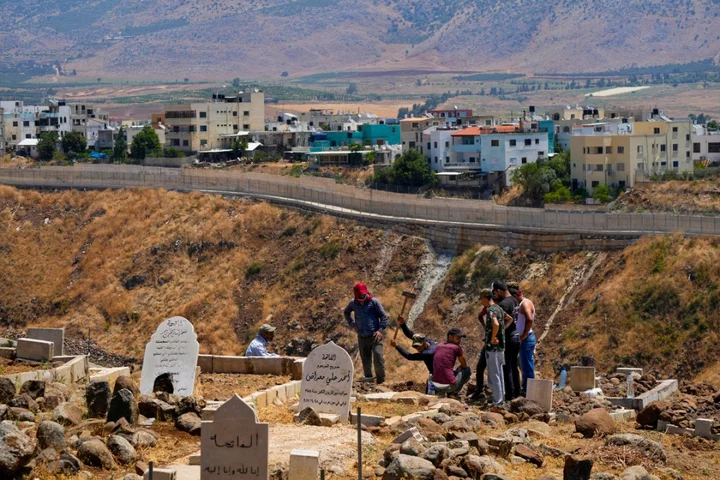
Moves at a small border village hike Israel-Hezbollah tensions at a time of regional jitters
The little village of Ghajar has been a sore point between Israel and Lebanon for years, split in two by the border between Lebanon and the Israeli-occupied Golan Heights. But after a long period of calm, the dispute has begun to heat up again. Israel has been building a wall around the half of the village in Lebanese territory, triggering condemnation from the Lebanese militiant force Hezbollah, accusing Israel of moving to annex the site. A recent exchange of fire in the area raised alarm that the dispute could trigger violence. The growing tensions over Ghajar add to the jitters along the Lebanese-Israeli border, where Israel and Iranian-backed Hezbollah fought a destructive 34-day war in the summer of 2006. The two sides have studiously avoided outright battle ever since, despite frequent flare-ups of tension -- but each constantly says a new conflict could erupt at any time. The dispute over a small village in the green hills where Lebanon, Israel and Syria meet brings a new point of worry amid broader unrest. The West Bank has seen increased bloodshed the past week, with a major two-day offensive that Israel says targeted Palestinian militants. Within Israel, moves by the hard-right government to overhaul the judicial system have sparked large anti-government protests. “This is Lebanese land, not Israeli,” said Lebanese shepherd Ali Yassin Diab, pointing to the half of Ghajar being enclosed by the Israeli wall as he grazed his sheep and goats nearby. Members of the U.N. peacekeeping force UNIFIL watched from a distance. Yassin used to take his herds to drink at a pond there. He now has to buy water for his sheep. The village’s division is an unusual byproduct of the decades of conflict between Israel and its neighbors. Ghajar was once part of Syria but was captured by Israel in the 1967 Mideast war as part of Syria’s Golan Heights, which Israel occupied and later annexed, with little world recognition. In the 1980s and 1990s, Ghajar’s population expanded north into nearby Lebanese territory, held by Israel in its 18-year occupation of southern Lebanon. When Israel withdrew from Lebanon in May 2000, U.N. surveyors delineating temporary borders ruled that Ghajar’s northern part was in Lebanon, its southern part in the Golan, dividing it in two. Six years later, Israeli troops moved into the northern part of Ghajar during the Israel-Hezbollah war. They have occupied it since, preventing people from entering it from Lebanon. Under the truce that ended the 2006 fighting, Israel agreed to withdraw from Ghajar, but it wanted to clinch an arrangement to keep Hezbollah from entering the village. Most of Ghajar’s around 3,000 residents hold Israeli nationality — some of them alongside Lebanese — and they largely identify as Syrians. Last year, Israel started erecting a concrete wall around the northern part of the village. It also began encouraging Israeli tourism to the village. In apparent reply to the near finishing of the wall, Hezbollah set up two tents nearby, including one in the area of Chebaa Farms, which both Israel and Lebanon claim as its territory. It is not clear what is inside the tents. Israel filed a complaint with the United Nations, claiming the tents were several dozen meters (yards) inside of Israeli territory. Hezbollah says the tents are in Lebanese territory. Israeli Foreign Ministry spokesman Lior Haiat told the AP that Israel has turned to UNIFIL and “other countries” to resolve the situation but did not identify the countries and did not immediately comment on the wall in Ghajar. On Monday, UNIFIL’s commander relayed an Israeli request to Lebanon’s caretaker prime minister and parliament speaker to remove the tent. They responded that Israel should withdraw its troops from the Lebanese part of Ghajar, according to Lebanese Foreign Minister Abdallah Bouhabib. Hezbollah leader Sayyed Hassan Nasrallah said in a speech Wednesday night that Israel cordoned off Ghajar before Hezbollah set up its tents. “Over the past days, it became clear that they (Israel) have annexed it,” Nasrallah said. He added: “The land of Ghajar will not be left for Israel, and certainly not Chebaa Farms and Kfar Chouba,” another border area claimed by both countries. A female resident of Ghajar, speaking to the AP on condition of anonymity due to security concerns, said the villagers consider themselves Syrian but their main concern “is to stay in Ghajar, in this village, living in peace and security. No matter under who rules.” “There is a (border) line that was drawn by the United Nations. Why are they allowed to cross it while we as Lebanese citizens cannot?” Mohammed Rammal, the mayor of the nearby Lebanese border village of Oddeissi, said of Israel’s presence in Ghajar. Last week, an anti-tank missile was fired from Lebanon near Ghajar, with some fragments landing in Lebanon and others inside Israeli territory. Israel fired shells on the outskirts of the nearby village of Kfar Chouba. On Wednesday, an explosion elsewhere near the border slightly wounded at least three Hezbollah members. Nasrallah said the case is still under investigation. Late last month, Hezbollah said it shot down an Israel drone flying over a village in southern Lebanon. On Monday, Prime Minister Benjamin Netanyahu met with President Joe Biden’s special envoy for energy, Amos Hochstein, during which they discussed “regional issues,” according to the Israeli prime minister’s office. Some Israeli media said Netanyahu and Hochstein, who helped last year broker a maritime border deal between Israel and Lebanon, discussed tensions along the border with Lebanon. “We continue to monitor and engage with authorities in Lebanon and Israel on the issue of Ghajar,” UNIFIL spokeswoman Kandice Ardiel said. She added that UNFIL has repeatedly called on Israel to stop its works north of the line and that Israel’s occupation of northern Ghajar violates the U.N. Security council resolution that ended the 2006 war. Israel considers Hezbollah its most serious immediate threat, estimating it has some 150,000 rockets and missiles aimed at Israel. During a tour by an Associated Press team near Ghajar this week, more patrols by U.N. peacekeepers and Lebanese army along the border were visible. Residents in nearby villages appeared defiant and going on with life as usual during the summer season, when many expatriates come to spend time with their families. In Lebanese media, many analysts say neither side wants a new war. But Lebanese political analyst Faisal Abdul-Sater warned that the situation is very dangerous as Israel and Hezbollah are on alert. “Whoever fires the first shot will bear the responsibility for the consequences,” he said. ___ AP correspondent Josef Federman contributed to this report. Read More Ukraine war’s heaviest fight rages in east - follow live Charity boss speaks out over ‘traumatic’ encounter with royal aide AP Week in Pictures: Europe and Africa Stock market today: Asian shares buoyed by Wall Street's winning week as inflation eases For a group of Ukrainian women, painting is a form of therapy to help them cope with loss
1970-01-01 08:00
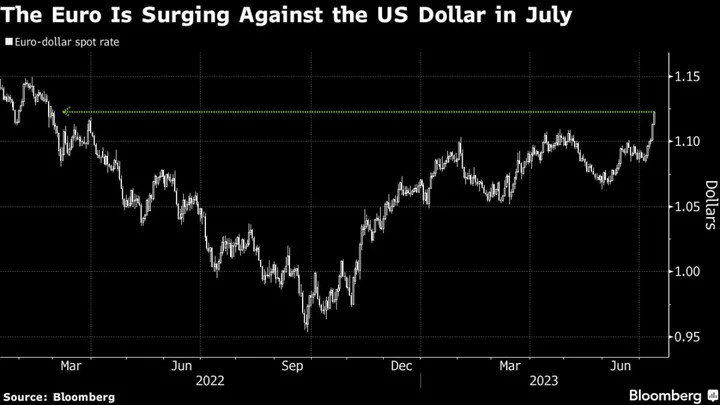
Wall Street Is Buying Into Dollar Smile Theory at a Frantic Pace
For Stephen Jen, the famous dollar prognosticator, the Federal Reserve looks all set to win its war on
1970-01-01 08:00

'Alarming and unprecedented' Irish bird flu warning
Hundreds of seabirds with suspected avian flu have been found dead in recent weeks.
1970-01-01 08:00
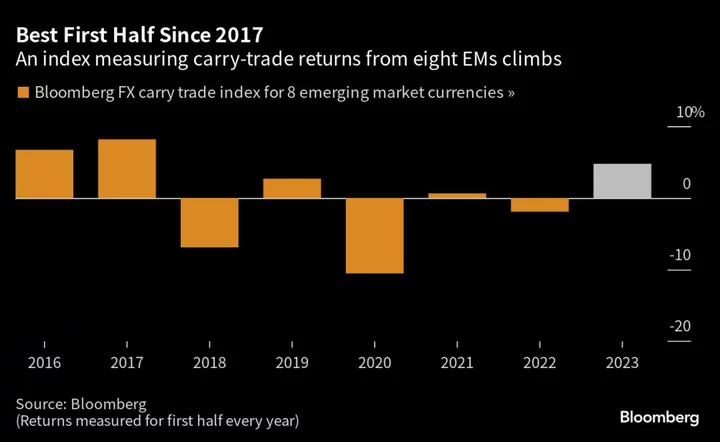
Carry Traders Fret That Good Times May Be Closer to an End
Global carry traders are facing a growing sense of anxiety toward anything that threatens to derail one of
1970-01-01 08:00
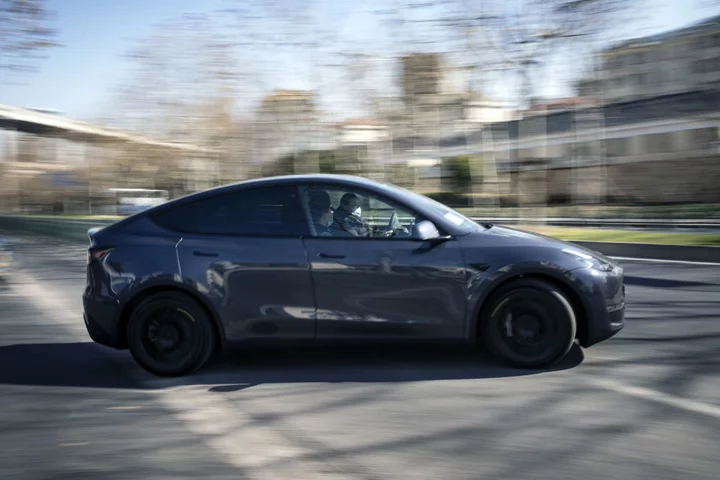
Tesla Starts Selling Chinese-Made Model Y in Korea for $44,000
Tesla Inc. has started selling Chinese-made Model Y sports utility vehicles in South Korea, slashing the price to
1970-01-01 08:00
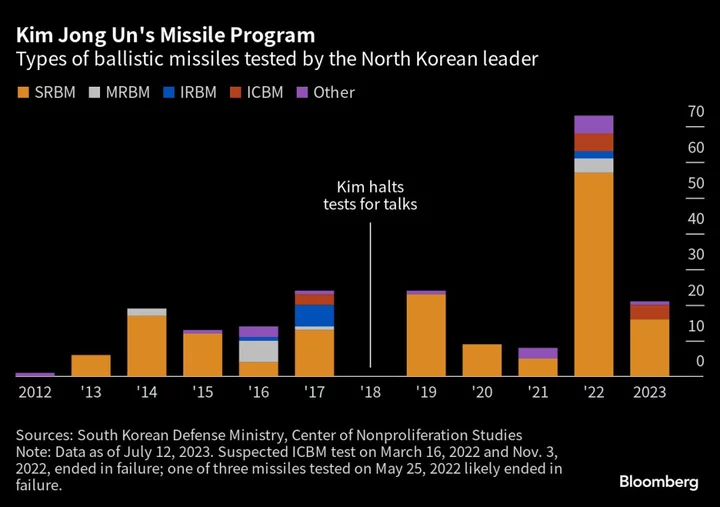
North Korea Raises Ability for US Nuclear Strike With New ICBM
North Korea’s newest long-range missile increases the chances it could deliver a strike to the US mainland, giving
1970-01-01 08:00
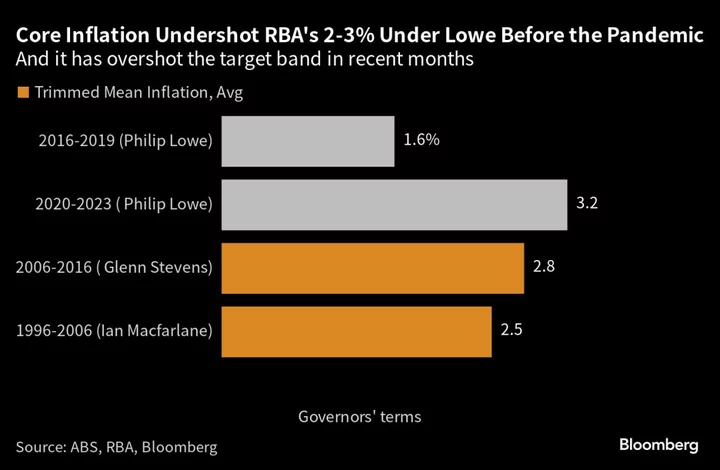
RBA’s Lowe Faced Disinflation, Pandemic, War in Turbulent Term
Australia’s outgoing central bank chief Philip Lowe proved to be a convenient scapegoat for public anger over surging
1970-01-01 08:00
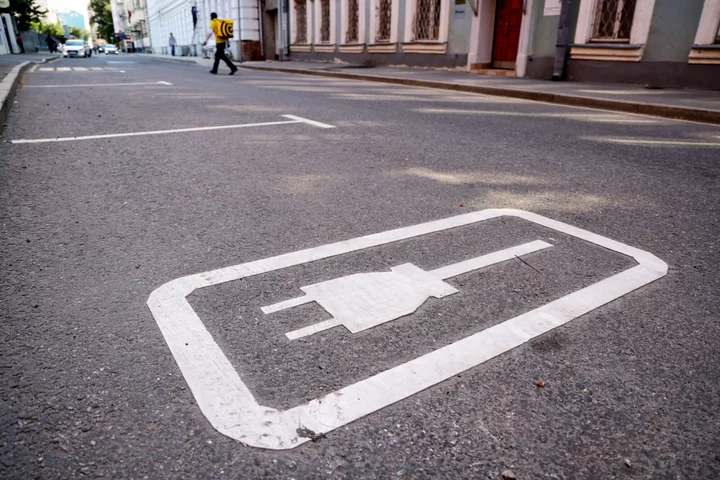
EU Working on E-Bus for Lithium Deal With Latin American Nations
European Union officials are working on a plan that can help provide electric buses to Latin American nations
1970-01-01 08:00
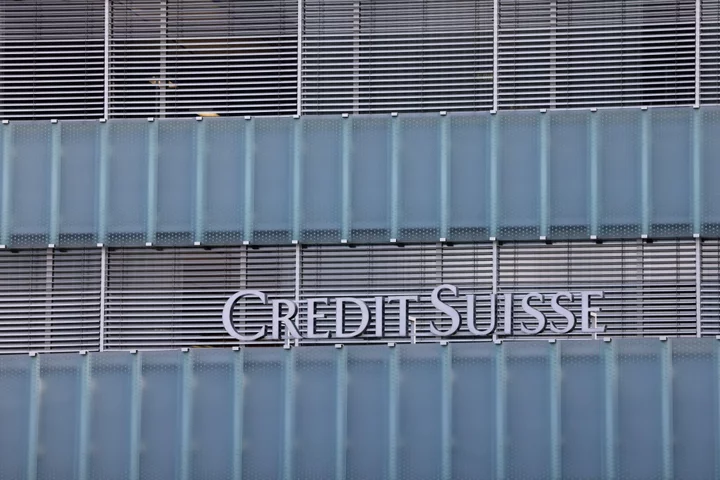
Credit Suisse Stands Out as Rare Case of Bank Disclosing EM Debt
Credit Suisse is one of a handful of global banks publicly disclosing some loans to poor countries, as
1970-01-01 08:00
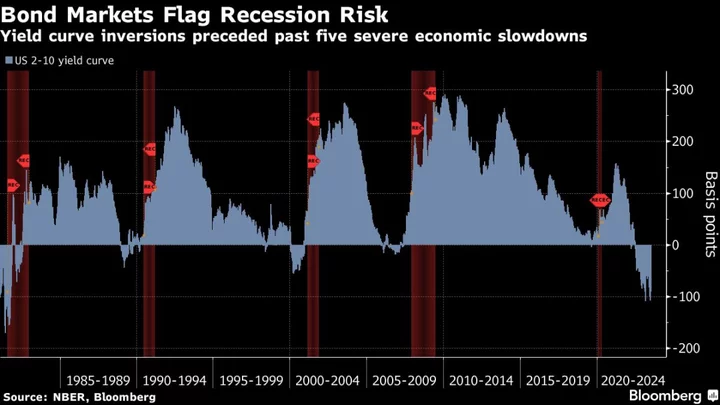
JPMorgan Asset’s Michele Says Global Bond Rally Is Just Starting
The bond rally that erupted after this week’s US inflation report was the moment Wall Street veteran Bob
1970-01-01 08:00
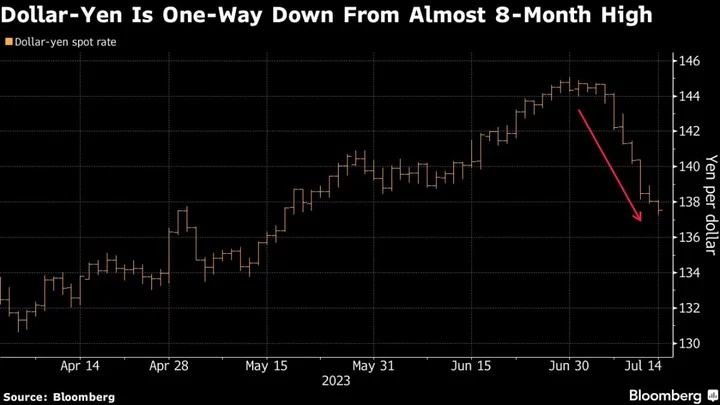
The Yen Is Headed for Its Longest Rally Since 2018
The yen was on course to notch its longest winning streak since 2018 amid signs of position adjustments
1970-01-01 08:00
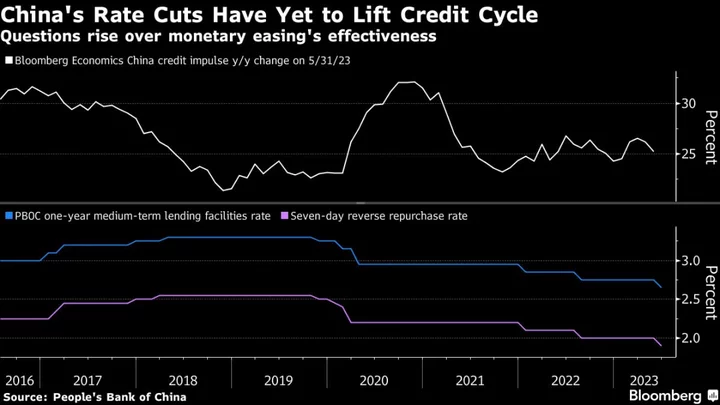
China Central Bank Pledges to Use Policy Tools to Spur Recovery
The People’s Bank of China urged patience and confidence in the economy’s recovery as it pledged to use
1970-01-01 08:00
